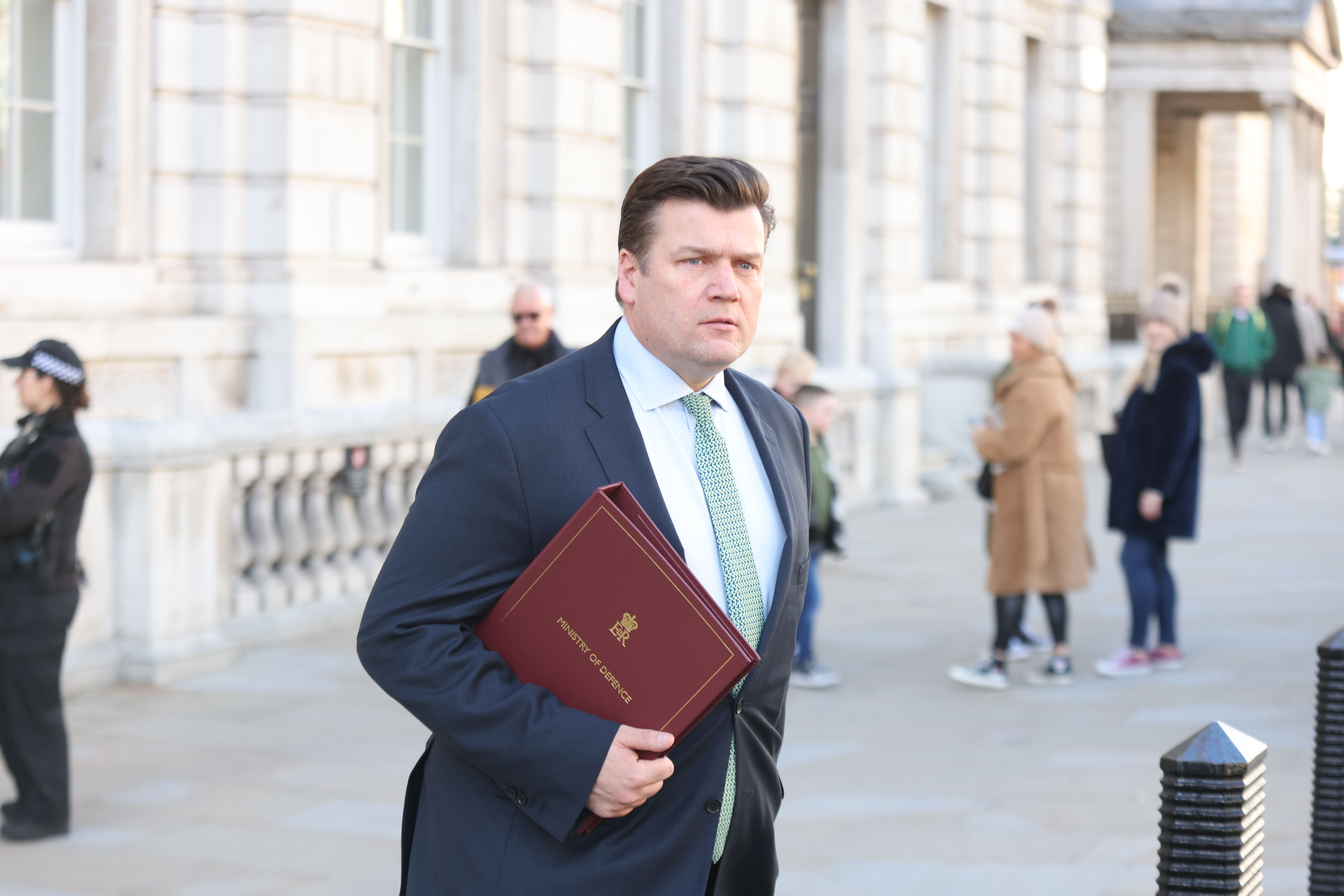British spies and special forces soldiers were among the tens of thousands of people potentially put at risk by the catastrophic Afghan data leak, The Independent understands.
The breach, made by a Ministry of Defence official in February 2022, exposed the details of Afghans seeking an escape to the UK because they claimed links to British forces put them at risk of Taliban reprisals.
The blunder resulted in 16,000 Afghans affected by the data breach being evacuated to Britain, with some 8,000 still to come, and prompted an unprecedented two-year superinjunction preventing the publication of any details.
Now, defence sources have revealed that the names of more than 100 British government personnel, including MI6 spies, members of the SAS, MPs, government ministers and other senior military figures, were also exposed.
The details come on another extraordinary day of revelations in the scandal, including:
The latest revelations come after the defence secretary John Healey told MPs on Tuesday that “in a small number of cases, the names of members of parliament, senior military officers and government officials were noted as supporting the application”.
In a public court hearing in front of a High Court judge on Thursday, Jude Bunting KC said “it was a matter of surprise to the [media] defendants that the secretary of state was able to report those details we weren’t”.
He added: “We can now report those details.”
Cathryn McGahey KC, who was representing the government in the case, said that the defence secretary was now giving “urgent consideration” to the wording of a continuing gagging order on the press, which remains in place.
Meanwhile, the Intelligence and Security Committee, an influential group of MPs, have demanded answers about why they were not briefed about the Afghan data leak.
Lord Beamish, chair of the committee, said MPs wanted all intelligence assessments on which the superinjunction relied to keep the breach a secret for so long. In a terse letter to ministers, he warned that there were “no grounds” to withhold the information from them and said he wanted it sent “immediately” to the committee.
Lord Beamish, who has served on the committee for a number of years, told The Independent: “We are not like a normal parliamentary select committee, we are a statutory committee, so the government has to provide us with what we have asked for.”
“This has never happened before in my experience. There was no grounds for it.”

And in a statement in response to the Afghan data breach, the former armed forces minister James Heappey said it was “gut-wrenching to find out that someone in the MoD had screwed up so awfully”, but said the person was “incredibly dedicated to those we served with in Afghanistan”.
He also claimed that the department’s decision-making on applications to bring former Afghan special forces, known as the Triples, to safety in the UK was “flawed” and suggested he had been misled by military officials over their eligibility to come here.
He said: “I pushed and pushed within the MoD for clarification in response to what was said in the press, parliament and by campaigners. Again and again, I said in public what very senior officials and military had briefed me. It is hugely frustrating that proved to be wrong.”
The plight of the Triples was highlighted in 2023 by The Independent in a joint investigation that revealed its members faced death or torture by the Taliban and were wrongly denied sanctuary in the UK, despite training and fighting alongside British forces.
Our reporting showed that the Afghan commandos had been paid by the British, something that was rebuffed by the government at the time.
Responding to Dan Jarvis MP, who said he knew the Triples were paid directly by UK forces, Mr Heappey said in January 2024 that there was “a difference in opinion between the advice that I receive from officials and the advice that the honourable gentleman sets out”.
Labour’s armed forces minister Luke Pollard finally admitted last October that “officials have now confirmed that there is evidence of payments from the UK government”.
Meanwhile, Afghans who escaped to safety in Pakistan while they waited to be brought to the UK have told of their horror at discovering their details were among those exposed by the breach.
Rayan, and 16 members of his family, have been living in three hotel rooms in Islamabad for nine months, waiting to hear when they will be brought to safety because of the risk posed to them due to his father’s work with British forces.
He said learning of the breach “was a really awful experience”, adding: “I feel like a ball in a football pitch with everyone kicking us from one side to the other”.
He is one of around 2,000 people who have been affected by the data leak and who have been evacuated from Afghanistan but haven’t yet been brought to the UK, and don’t know when they will be.







